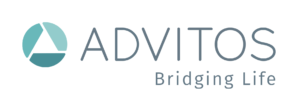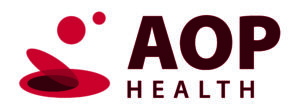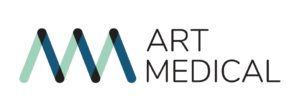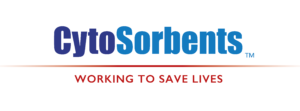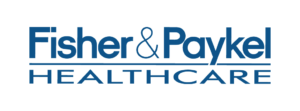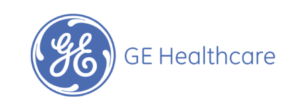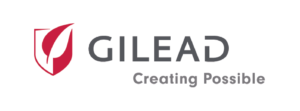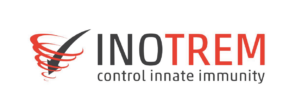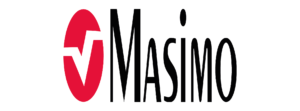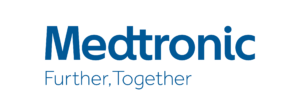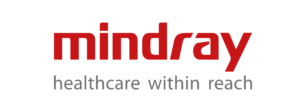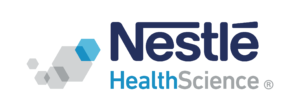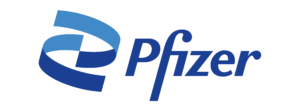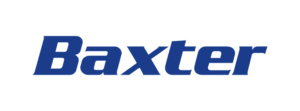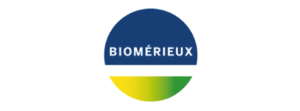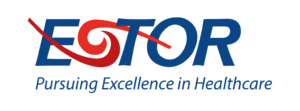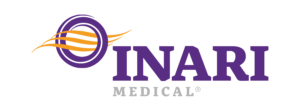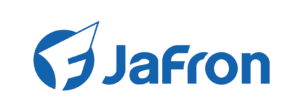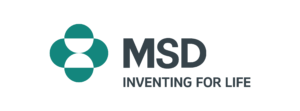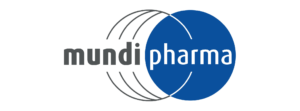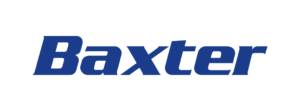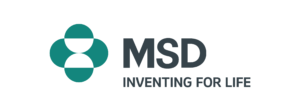35th Annual Congress – Paris

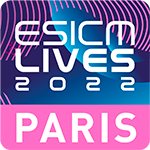
LIVES, October 22-26, 2022, Paris (Palais des Congrès – Porte Maillot)
Our annual congress is finally back in presence in Paris! One of the largest and most prestigious gatherings of intensive care personnel worldwide, LIVES is the place where you can absorb the latest evidence and advance in Intensive Care and patient care through multidisciplinary discussions and talks, interactive courses, demonstrations of the newest technology and simulation exercises.
In Paris, the innovative formats of on-site sessions and activities will facilitate networking and knowledge exchange with colleagues and friends. We are determined to make your on-site conference experience as memorable and rewarding as ever.
Join thousands of physicians, anaesthetists, trainees and nursing and allied health professionals from every continent and over 90 countries, during 5 eventful days:
• 22-23 October ~ Pre-congress Educational Courses Weekend
• 23 October, 17:00-18:30 CEST ~ Opening Session followed by the Welcome Reception
• 24-26 October ~ Congress Scientific Sessions and Educational Hands-on & Workshops
GENERAL INFORMATION
LIVES is back to face-to-face!
 General Information
General Information
Our annual congress is finally back in presence! Join thousands of physicians, anaesthetists, trainees and nursing and allied health professionals from every continent and 97 countries, during 5 eventful days:
• 22-23 October ~ pre-congress educational courses weekend
• 23 October, 17:00-18:30 CEST ~ opening session followed by the welcome reception
• 24-26 October ~ congress’ scientific sessions and educational hands-on & workshops
We look forward to meeting you, in person, in Paris! Register here.
Venue & Transportation in Paris
Address
Palais des Congrès de Paris
2 Place de la Porte Maillot
75017 - PARIS
Access to the venue
By public transport
- METRO Line 1, Porte Maillot station
- RER Line C, Neuilly-Porte Maillot station
- BUS Lines 43 73 82 244 PC1 PC3
By car
Palais des Congrès de Paris
2 Place de la Porte Maillot,
75017 - PARIS
Car Parking: Indigo Porte Maillot car park
Due to works at Porte Maillot, we recommend that you use public transport to visit the Palais des Congrès.
From the airport
CDG Airport / Orly Airport: RER B Line until Chatelet les halles, and then Metro Line 1 until Porte Maillot.
Beauvais Airport: Paris–Beauvais shuttle service
Congress Language
The official language of the Congress is English. There will be no simultaneous translation.
Certificate of attendance
After the congress, you will receive an email inviting you to log in to our platform to download your certificate of attendance for the Congress and the Pre-Congress Courses.
Opening Hours
Registration
| Saturday, 22 October | 07:30 - 18:30 |
| Sunday, 23 October | 07:30 - 20:00 |
| Monday, 24 October | 07:00 - 18:30 |
| Tuesday, 25 October | 07:00 - 18:30 |
| Wednesday, 26 October | 07:00 - 15:00 |
Exhibition
| Sunday, 23 October | 18:30 - 20:15* |
| Monday, 24 October | 09:00 - 18:00 |
| Tuesday, 25 October | 09:00 - 18:00 |
| Wednesday, 26 October | 09:00 - 14:00 |
*Networking Reception in the Exhibition Hall
Cloackroom
| Sunday, 23 October | 16:00 - 21:00 |
| Monday, 24 October | 07:00 - 18:30 |
| Tuesday, 25 October | 07:00 - 18:30 |
| Wednesday, 26 October | 07:00 - 16:30 |
The cloakroom is located on the Level 0 of the Palais des Congrès.
2.00 EUR will be charged for each piece of clothing and 5.00 EUR for each bag or suitcase.
Lost & Found
Lost items can be collected at the cloakroom during the Congress. Unclaimed items will be thrown away then.
On-Site Facilities
Restaurants:
Lunches are not included in the registration fee.
There will be coffee and lunch areas in the Industry Exhibition.
Wi-Fi
Free Wi-Fi is available throughout the Paris Palais des Congrès – Porte Maillot during the ESICM LIVES 2022 Congress.
SSID: LIVES2022
Password: lives2022
Non-Smoking Congress
ESICM LIVES 2022 is a non-smoking Congress. Therefore, ESICM thanks the participants in advance for not smoking in the Paris Palais des Congrès – Porte Maillot well as during coffee breaks and reception.
COVID-19 rules
Regarding COVID-19, please note that we will follow the rules in force in France at the moment the congress will be held, i.e. in October 2022.
For more information about the COVID-19 rules applied in France.
As recommended for meetings in closed areas with a lot of participants, we recommend having a mask within the congress venue and remind to wash your hands regularly.
CME Credits
 CME Credits
CME Credits
CERTIFICATE OF ATTENDANCE
After the congress, you will receive an email inviting you to log in to our platform to download your certificate of attendance for the Congress and the Pre-Congress Courses.
CONGRESS ACCREDITATION
The ESICM LIVES 2022 Annual Congress, Paris, France, 24/10/2022-26/10/2022 has been accredited by the European Accreditation Council for Continuing Medical Education (EACCME®) with 22 European CME credits (ECMEC®s).
Each medical specialist should claim only those hours of credit that he/she actually spent in the educational activity.
Through an agreement between the Union Européenne des Médecins Spécialistes and the American Medical Association, physicians may convert EACCME® credits to an equivalent number of AMA PRA Category 1 CreditsTM. Information on the process to convert EACCME® credit to AMA credit can be found at www.ama-assn.org/education/earn-credit-participation-international-activities.
Live educational activities, occurring outside of Canada, recognised by the UEMS-EACCME® for ECMEC®s are deemed to be Accredited Group Learning Activities (Section 1) as defined by the Maintenance of Certification Program of the Royal College of Physicians and Surgeons of Canada
ACCREDITATION OF THE PRE-CONGRESS COURSES
The Mechanical Ventilation, Paris, France, 22/10/2022-23/10/2022 has been accredited by the European Accreditation Council for Continuing Medical Education (EACCME®) with 12 European CME credits (ECMEC®s).
The Haemodynamics, Paris, France, 22/10/2022-23/10/2022 has been accredited by the European Accreditation Council for Continuing Medical Education (EACCME®) with 9 European CME credits (ECMEC®s).
The Advanced Bedside Monitoring in Acute Respiratory Failure, Paris, France, 22/10/2022-23/10/2022 has been accredited by the European Accreditation Council for Continuing Medical Education (EACCME®) with 12 European CME credits (ECMEC®s).
The Intensive Care Cracking Refresher Course, Paris, France, 22/10/2022-23/10/2022 has been accredited by the European Accreditation Council for Continuing Medical Education (EACCME®) with 12 European CME credits (ECMEC®s).
The Advanced Course in Intensive Care Echocardiography, Paris, France, 22/10/2022-23/10/2022 has been accredited by the European Accreditation Council for Continuing Medical Education (EACCME®) with 11 European CME credits (ECMEC®s).
The General Intensive Care Utrasound, Paris, France, 22/10/2022-23/10/2022 has been accredited by the European Accreditation Council for Continuing Medical Education (EACCME®) with 11 European CME credits (ECMEC®s).
Each medical specialist should claim only those hours of credit that he/she actually spent in the educational activity.
Through an agreement between the Union Européenne des Médecins Spécialistes and the American Medical Association, physicians may convert EACCME® credits to an equivalent number of AMA PRA Category 1 CreditsTM. Information on the process to convert EACCME® credit to AMA credit can be found at www.ama-assn.org/education/earn-credit-participation-international-activities.
Live educational activities, occurring outside of Canada, recognised by the UEMS-EACCME® for ECMEC®s are deemed to be Accredited Group Learning Activities (Section 1) as defined by the Maintenance of Certification Program of the Royal College of Physicians and Surgeons of Canada.
Frequently Asked Questions
 Still have questions? See our FAQ below.
Still have questions? See our FAQ below.
Registration
| Saturday, 22 October | 07:30 - 18:30 |
| Sunday, 23 October | 07:30 - 20:00 |
| Monday, 24 October | 07:00 - 18:30 |
| Tuesday, 25 October | 07:00 - 18:30 |
| Wednesday, 26 October | 07:00 - 15:00 |
Exhibition
| Sunday, 23 October | 18:30 - 20:15* |
| Monday, 24 October | 09:00 - 18:00 |
| Tuesday, 25 October | 09:00 - 18:00 |
| Wednesday, 26 October | 09:00 - 14:00 |
*Networking Reception in the Exhibition Hall
Clockroom
| Sunday, 23 October | 16:00 - 21:00 |
| Monday, 24 October | 07:00 - 18:30 |
| Tuesday, 25 October | 07:00 - 18:30 |
| Wednesday, 26 October | 07:00 - 16:30 |
The cloakroom is located on the Level 0 of the Palais des Congrès.
2.00 EUR will be charged for each piece of clothing and 5.00 EUR for each bag or suitcase.
To attend the digital congress, you require a valid registration, good internet connection, your computer/laptop and a headset/headphones.
Make sure you test your system and make any necessary adjustments. We recommend you do this test prior to the day of the event.
Many factors could influence live page display, we strongly encourage you to follow these steps:
- Minimum 720p (1 280 × 720) screen resolution
- A stable ADSL/Fiber/4G internet connection
- Do not use a connection via VPN (if possible)
- We recommend you to use Chrome or Firefox as browsers.
- The live stream requires your agreement regarding internet cookies. Please make sure cookies are allowed on the congress' website. We also encourage you to deactivate Adblock, antiviruses and similar malware protection for this specific website.
- To enforce security against malicious intents, your professional computer or and/or network might block specific ports or internet elements. If that is the case, please check the live page with your mobile phone's data.
Adjust your browser zoom for full view of the platform if needed.
The virtual registration fee includes access to the Opening Session, several Thematic Sessions, Interviews, all Debates, Symposia and the Virtual Exhibition on the virtual congress platform only.
No access will be offered to poster sessions and the educational activities (hands-on, workshops, pre-congress courses, congress courses and case-based fundamentals).
Links and all necessary information on how to access LIVES online will be emailed to you right before the start of the congress.
You will be able to review the sessions and visit the virtual exhibition via the link sent to you (i.e., from the virtual platform) throughout the 3 months following the congress.
After that period, the recordings can be accessed via the e-LIVES library on our website.
Access is limited to: 1 email / 1 access / 1 device.
You can only connect on one device.
To get the best experience at this digital event, we strongly encourage you to connect using a laptop/PC.
The webcam is not mandatory to attend the event. It will only be necessary for the Meet the Expert sessions.
At the moment, the preliminary programme is available on our website on the e-Planner. The full programme can be viewed on the event platform soon.
Chat will be available in all live sessions. You will be able to ask a question or make a comment with the speakers during the live sessions.
Industry sponsored sessions and e-booths will be accessible on our platform during 3 months as for the scientific programme.
The official hour of the entire LIVES 2022 is CEST (Central European Summer Time). You can use this website to convert https://24timezones.com/difference/ CEST into your local time.
Yes, if you are a registered delegate you will be able to access all of our sessions and watch them again during 3 months indefinitely and as often as you like.
Yes, those who register for the congress and watch sessions can request a certificate of attendance.
Yes. The ESICM LIVES 2022 Annual Congress, Paris, France, 24/10/2022-26/10/2022 has been accredited by the European Accreditation Council for Continuing Medical Education (EACCME®) with 22 European CME credits (ECMEC®s). Each medical specialist should claim only those hours of credit that he/she actually spent in the educational activity.
CME credits can be claimed for participation during the 3-day congress (24-26 October) and for the recorded sessions during or after these dates. The EACCME accreditation for recorded sessions will be valid for a period of three months from the starting date of the event. After three months, viewers will not be entitled to receive EACCME credits anymore for viewing the recorded event.
To claim your CME credits you need first to complete a short questionnaire about your LIVES experience, which you will receive by email. The CME certificate will then be available to download and/or print.
The Help Desk can be contacted from 9.00 am to 6.00 pm (CET) from 22 - 26 October: support@cyimhelp.zendesk.com
Please note that the platform, Video On Demand, and Exhibition can be accessed at any time. Still, our support and live sessions will only be available at the times indicated below:
| Sunday 23 Oct | Monday 24 Oct | Tuesday 25 Oct | Wednesday 26 Oct | |
| Delegate Support | 14:00 - 18:30 | 07:00 - 18:00 | 08:00 - 18:00 | 08:00 - 16:00 |
| Live Sessions | 17:00 - 18:30 | 08:00 - 18:15 | 08:00 - 18:35 | 08:00 - 15:35 |
Please contact the Registration Department at registration@esicm-congress.org
PROGRAMME
Abstracts
 Abstracts
Abstracts
Abstract Book
All accepted abstracts are published in electronic format both on the ESICM and on the ICMx websites in the ICMx Supplement of October 2022.
All ESICM Abstract Books from 2014 to 2022 can be found here.
Review Process
The abstract submission system closed on 02 May 2022. The submitted abstracts have been examined anonymously by the ESICM Reviewers and ESICM Congress Committee. We thank the abstracts submitters and congratulate those selected. We also encourage the authors not selected to resubmit for the ESICM LIVES 2023 in Milan.
The authors have been informed of acceptance/rejection of their abstract by email on 16 June. Presentation details have been sent by email on 05 August.
Abstract Awards
Five Best Abstracts Awards
Presenters of the 5 best abstracts will receive an award including one free registration to LIVES 2023 (core congress) plus travel and accommodation (up to 1,000 Euro).
Abstracts selected by the jury will be presented in our Abstract Award Winning Session during the Congress on Wednesday 26 October at 09:00-10:15 in room Grand Amphi:
000816 - Performance Improvement of healthcare processes in Argentine Public Health Sector ICUs during COVID-19 using Quality Improvement Collaborative
Cecilia Inés Loudet (Buenos Aires, Argentina)
000879 - Immunosuppressive phenotypes and theragnostic targets in sepsis – a prospective cohort study
Timothy Arthur Chandos Snow (London, United Kingdom)
000972 - Intracranial pressure monitoring practice, treatment and effect on outcome in aneurysmal subarachnoid hemorrhage: a subanalysis of the International prospective observational StudY on iNtrAcranial PreSsurE in intensive care - SYNAPSE-ICU
Marta Baggiani (Milan, Italy)
000974 - Ceftazidime therapeutic drug monitoring in ICU: impact of obesity and glomerular filtration rate
Patricia Correia (Saint-Priest-en-Jarez, France)
001069 - Argumentation in End-of-Life Conversations with Families in Dutch Intensive Care Units
Aranka Akkermans (Amsterdam, Netherlands)
Three N&AHP Abstract Awards
The N&AHP best abstract award includes:
- one free registration to LIVES 2023 (core congress) plus travel and accommodation (up to 1.000 Euro).
- two runners-up will receive free registrations to LIVES 2023 (core congress).
Abstracts selected by the jury will be presented in our session N&AHP unlimited and networking during the Congress on Tuesday 25 October at 16:45-18:00 in room Salle 251:
000305 - Psychological distress and morbidity of family members experiencing virtual visiting in intensive care during COVID-19: an observational cohort study
Louise Rose (London, United Kingdom)
000146 - The impact of a dedicated critical illness rehabilitation team on mobility levels in survivors of critical illness on step down to the ward
David McWilliams (Coventry, United Kingdom)
001149 - The evolution of activities of daily living in critically ill COVID-19 patients in a 1-year follow-up
Samuele Ceruti (Lugano, Switzerland)
One ISF Abstract Award
The ISF Abstract Award includes a free registration to LIVES 2023 (core congress) plus travel and accommodation (up to 500 Euro).
Abstract selected by the jury will be presented in our e-Poster Session Systemic Inflammation & Sepsis 5 during the Congress on Tuesday 25 October at 11:40-12:50 on Poster Station F:
000821 - Blood Transcriptomic Endotypes and the Response to Treatment Modalities in Sepsis: A Prospective Cohort Study
Niels Van Mourik (Amsterdam, Netherlands)
Notes:
- Submission of an abstract constitutes a formal commitment by the author to present the abstract at the session and the time decided by the Congress Committee. One of the co-authors can take over if needed. Failure to present the abstract for other than duly motivated reasons will lead to rejection of abstract submission at the next ESICM Event.
- Registration fees for the presenting author will not be waived.
- It is the authors' responsibility to submit abstracts in perfect order with no errors in spelling and grammar. Abstracts will not be corrected.
- ESICM does not accept case reports.
- The authors agree that ESICM will record the presentation for subsequent use as it deems appropriate.
- The signing author certifies that any work with human or animal subjects related in this abstract complies with the guiding principles for experimental procedures set forth in the Declaration of Helsinki and related publications.
- Submitting an abstract also certifies that at the time of submission, the scientific material found within the abstract has not been presented at any other meeting and will not be published in any form other than abstract form prior to the ESICM Annual Congress.
Failure to adhere to these rules will result in the automatic rejection of the abstract.
Still have questions? See our FAQ below:
The authors will be informed of the acceptance/rejection of their abstract by email by end of June.
No, late-breaking abstracts won’t be accepted.
No, you will not be able to make changes to your abstract once submitted. However, corrections can be highlighted on your poster if necessary.
Yes, all accepted abstracts will be published in the Abstract Book which can be accessed via our website just before the congress.
Yes, the abstract presenter must register for the congress in order to present/upload his work.
Submitting an abstract also certifies that at the time of submission, the scientific material found within the abstract has not been presented at any other meeting and will not be published in any form other than abstract form prior to LIVES 2022 Paris. If you have plans to do so, please contact us at scientific@cyim.com in order that your abstract may be withdraw from our event.
Although you may withdraw your abstract and decide not present it during the LIVES 2022 digital congress please note that this will mean you will not be able to submit it again for LIVES 2023, as the abstract will have already been published in the Abstract Book 2022.
Yes, all participants who registered for the congress, submitted and uploaded an abstract will receive a certificate after the congress.
Please email us at scientific@cyim.com.
Scientific Programme
 Scientific Programme
Scientific Programme
At LIVES 2022 in Paris, the innovative formats of on-site sessions and activities will facilitate networking and knowledge exchange with colleagues and friends.
The scientific programme will include an ample variety of formats: symposia, dynamic debates, case presentations, interactive lectures and case discussions and many more!
The ESICM LIVES 2022 Annual Congress, Paris, France, 24/10/2022-26/10/2022 has been accredited by the European Accreditation Council for Continuing Medical Education (EACCME®) with 22 European CME credits (ECMEC®s). Learn more.
What can you expect at LIVES 2022?
Debates
Take part in in-depth discussions about complex problems/situations that clinicians address in their daily practice. Experts from various areas of intensive care medicine are invited to speak on a set topic, then the moderator and audience can join the debate.
Hot Topics Session
Session at the end of the congress devoted to the presentation of cutting-edge research on the cornerstones of Intensive Care Medicine to a very large audience.
Latest research from the ICM Journal
This session will discuss a series of papers recently published in the Intensive Care Medicine Journal and deep dive into their implication for clinical practice, among them:
- (1→3)-β-D-glucan-guided antifungal therapy in adults with sepsis - the CandiSep randomized clinical trial (Frank Bloos)
- Extubation in neurocritical care patients. The ENIO international prospective study (Karim Asehnoune)
- Remote ischemic conditioning in septic shock: The RECO-Sepsis randomized clinical trial (Martin Cour)
- Coronavirus disease 2019 subphenotypes and differential treatment response to convalescent plasma in critically ill adults: secondary analyses of a randomized clinical trial (Manu Shankar-Hari)
- Effect of postextubation conditioned noninvasive ventilation vs high-flow nasal cannula on reintubation in patients at very high risk for extubation failure: a randomized trial (Gonzalo Hernandez)
- ESICM guidelines on the management of ARDS (Carolyn Calfee)
ESICM Members Lounge
An informal space to network and share knowledge and ideas with other members.
NEXT Lounge
The place for young intensivists and ICM trainees to meet, mingle and enjoy a specially-designed parallel scientific programme.
Tech Forum
Watch demonstrations of the latest technology to analyse big data, see how telemedicine works and discuss how future developments in technology can change the way we practise. Dynamic sessions where you can participate and contribute to the discussion onsite and via social media.
Poster Stations
Abstract presenters will have a brief discussion of their research, answering questions and comments by the moderators and the audience.
Educational Programme
 Educational Programme
Educational Programme
Diverse formats for diverse needs
LIVES 2022 is designed to meet the most diverse educational needs of physicians and nurses, and facilitate the transfer of knowledge to the bedside for better clinical performance and patient outcome.
You will be able to join multiple pre-Congress courses on topics of high interest in Intensive Care. A tunnel of practical workshops will also wait for you during the congress where you can perform hands-on and/or simulations on echocardiography, ECMO, Mechanical Ventilation, Haemodynamics, Renal Replacement Therapy and Trauma. Moreover, you can continue your path to the EDIC or EDEC diploma with an EDIC II Preparatory Course during the congress, as well as EDEC examination.
We hereby would like to wholeheartedly thank all the companies who provided material support for our educational activities at the congress.
Pre-Congress Courses, October 22-23
Prior to the congress, join any of the two-day courses focusing on topics of high interest in Intensive Care.
The following programmes will be held at LIVES 2022:
Max number of participants: 60
This course will bring you new insights into respiratory mechanics, waveform interpretations, oesophagal pressure, ultrasound & EIT.
The Advanced Bedside Monitoring in Acute Respiratory Failure has been accredited by the European Accreditation Council for Continuing Medical Education (EACCME®) with 12 European CME credits (ECMEC®s).
Participants will experience a progressive immersion in the content, active learning techniques and a variety of instructional strategies from interactive lectures and round tables with open debates on specific topics, to clinical study workshops and hands-on.
Max number of participants: 150
The ESICM Advanced Course on IC Echocardiography is designed for intensivists who have achieved a basic level of education and training in the use of echocardiography in an intensive care setting and would like to obtain advanced knowledge and certification of their competency.
This Advanced Course in Intensive Care Echocardiography course has been accredited by the European Accreditation Council for Continuing Medical Education (EACCME®) with 11 European CME credits (ECMEC®s).
Complement this course with practical hands-on sessions that you can book separately during the congress. For more information, check the hands-on section lower on this page.
Max number of participants: 60
The ESICM General Intensive care Ultrasound (GENIUS) course is a comprehensive, learner centric course which aims to support colleagues in achieving the competencies described in the recently published ESICM guidelines on ultrasound competencies.
The two-day training programme will offer hands-on learning, theoretical insights and case discussions with experts in critical care ultrasound. There will be ample opportunities to discuss and interact with colleagues who share a passion for critical care ultrasound, building learning as well as research networks.
This General Intensive Care Utrasound course has been accredited by the European Accreditation Council for Continuing Medical Education (EACCME®) with 11 European CME credits (ECMEC®s).
Max number of participants: 100
This course provides participants with a solid view of the field of cardiovascular physiology and haemodynamic monitoring in the ICU. Its core feature is a high level of interaction through interactive lectures, case-based discussions and reflective learning exercises.
This Haemodynamics course has been accredited by the European Accreditation Council for Continuing Medical Education (EACCME®) with 9 European CME credits (ECMEC®s).
Complement this course with practical workshops that you can book separately during the congress. For more information, check the workshop section lower on this page.
Max number of participants: 300
The course starts with a good physiological ground and then it moves to bedside management.
It leverages innovative educational methodology combining keynotes, interactive lectures, PechaKucha sessions (short, snappy very visual and concise presentations of narrow, clearly defined topics) and whiteboard sessions used for explaining difficult topics and summarising PechaKucha sessions.
The Intensive Care Cracking Refresher Course has been accredited by the European Accreditation Council for Continuing Medical Education (EACCME®) with 12 European CME credits (ECMEC®s).
Max number of participants: 60
Built around four main lectures, the course will feature formal lectures, exercises, problem solving and group discussion around how health policy and economics relates to the challenges of leadership and management in healthcare organisations.
The course is organised in collaboration with the Department of Health Policy of the London School of Economics (UK).
Max number of participants: 100
This course provides participants with a unique, bench-to-bedside training experience that blends theory with practice, academic with clinical.
This Mechanical Ventilation course has been accredited by the European Accreditation Council for Continuing Medical Education (EACCME®) with 12 European CME credits (ECMEC®s).
Complement this course with practical workshops that you can book separately during the congress. For more information, check the workshop section lower on this page.
Congress Workshops, Hands-on & Course, October 24-25-26
Please note: Registration for the congress is a prerequisite for signing up for the below educational sessions carried out during the congress.
Workshops
Skill and upskill through hands-on and high-fidelity simulations. During these sessions, you will join experts and peers to exchange best practices for better clinical performance and patient outcome.
Joint event ESICM & EuroELSO
Duration: 4 hours
Max number of participants: 150
Certification: Certificates are issued in collaboration with EuroELSO. The current adult VV/VA ECMO Simulation-based workshop, includes training of practical skills amongst which handling of :
- Air Embolism
- Pump Failure
- Gas Failure
- Membrane Lung Failure
- Drainage Insufficiency
Certificates may be validated at EuroELSO on the path to the ELSO Adult ECMO Practitioner Certification (E-AEC).
Learning objectives
- Understand the respective indications and basic management of V-A and V-V ECMO
- Identify basic circuit components & mechanical troubleshooting
- Understand the physiology of ECMO-patient interactions
- Identify and manage drainage insufficiency
- Identify and manage recirculation (V-V)
- Identify and manage LV distension (V-A)
- Identify and manage differential oxygenation (V-A)
- Understand the basics of weaning from V-A and V-V ECMO-support
- Gain the basic skill set to perform an ultrasonographic vessel assessment and echo guided percutaneous ECMO cannulation (Seldinger technique)
Content
- Cannulation demonstration
- Station 1: V-V station
- Station 2: V-A station
- Station 3: Normal pump physiology and troubleshooting
Duration: 4 hours
Max number of participants: 200
Complement this practical workshop with the pre-Congress course on Haemodynamics. For more information, check the pre-Congress courses at the top of this page.
Learning objectives
- Remind the determinants of arterial pressure and explain how to interpret it at the bedside
- Underline how different cardiac output monitoring devices work and detail their respective indications
- Remind the means for assessing tissue oxygenation and to discuss their drawbacks and advantages
- Discuss the practical use of different haemodynamic variables during simulation and clinical cases
Content
- Station 1: Clinical case debate and practical demonstration: determinants of arterial pressure and their interpretation at the bedside; cardiac output monitoring devices simulation
- Station 2: Practical use of different haemodynamic variables
- Station 3: Assessment of tissue oxygenation
Duration: 4 hours
Max number of participants: 200
Complement the practical workshop with the pre-Congress course on Mechanical Ventilation. For more information, check the pre-Congress courses at the top of this page.
Learning objectives:
- Assess the respiratory mechanics of patients with ARDS and in patients with chronic obstructive pulmonary disease and set up a ventilator
- Understand the role of oesophageal pressure monitoring in assessment of trans pulmonary pressure and breathing effort
- Understand the principles of airway pressure release ventilation and use in clinical practice
- Use lung and diaphragmatic ultrasound and electrical impedance tomography
Content
- Station 1: Assessment of Lung mechanics of ARDS patient; Setting the ventilator: initial settings for ARDS
- Station 2: Measuring oesophageal and trans pulmonary pressure
- Station 3: APRV and BiPAP
- Station 4: Demonstration of lung and diaphragmatic ultrasound and electrical impedance tomography
Duration: 4 hours
Max number of participants: 200
Learning objectives:
- Learn how to set up a CRRT circuit
- Identify practical issues associated with vascular access and filter
- Manage and understand common alarms
Content
- Station 1: Alarms / troubleshooting
- Station 2 - Citrate regional anticoagulation
- Station 3 - Setup
- Station 4 - Setup
Duration: 2 hours
Max number of participants: 80
Learning objectives
- Improve your crisis management skills
- Understand and learn the importance of non-technical skills for trauma management
- Be exposed to different ways of managing trauma patients
Content
- Two high fidelity simulation scenarios on trauma management, carried out in small groups where participants rotate as actors and observers
EDEC Hands-on
While the pre-Congress Course on Advanced critical care echocardiography combines interactive lectures, keynotes and case debates, the practical hands-on to be carried out during the congress will help you to complement theory with practice through this unique formula.
Book your hands-on slot in the simulation centre and benefit from practical training in a spectrum of echocardiographic techniques and skills (image acquisition, image interpretation and clinical integration) that extend the competencies required for basic critical care echocardiography.
Max number of participants: 204
Please note: hands-on slots may be booked also by participants who are not registered for the EDEC diploma.
Complement this practical hands-on with the pre-Congress course on Advanced critical care echocardiography. For more information, check the pre-Congress courses at the top of this page.
EDIC II Preparation Course
Dates: October, 25-26
Max number of participants: 108
This is the official ESICM Preparation Course for the European Diploma in Intensive Care (EDIC). You will be able to sit the mock examination and receive individual feedback from experienced EDIC examiners.
You will also know more about tips on how to pass the exam, including guidance on educational materials and other resources to best prepare for the Part II EDIC exam.
Content
- Computer-based Assessment on Curves, Biochemistry and Imaging
- Clinical Case Scenarios on Medical and Cardiothoracic topics
- Mock exams in small groups
REGISTRATION
Registration Information
 Registration Information
Registration Information
On-site registration: Late Fees, including 10% FR VAT.
Virtual registration: Standard Fees, including 21% Belgian VAT.
Prices are per person.
Registration Department
K.I.T. Group GmbH | Association & Conference Management | Kurfürstendamm 71, 10709 Berlin, Germany | Tel: +49 (0)30 24 603 319 | Email
What is included in the Virtual Registration Fee?
You will have access to part of the scientific programme of LIVES 2022, including:
- Opening Session on Channel 1 on Sunday, 23 October
- Thematic sessions on all the Channels
- Interviews on Channel 1
- Some debates on several Channels
- Symposia on all the Channels
- Virtual exhibition
- Video on demand content
You will be able to access all of our sessions and watch them again in the 3 months following the end of the congress.
You will not have access to:
- Poster sessions
- Educational activities (workshops, hands-on, pre-congress courses, congress courses, CBFs sessions)
CONGRESS FEES
CONGRESS (from Mon 24 Oct until Wed 26 Oct)
| ESICM MEMBER | Early fees Until 25 August |
Standard 26 August - 6 October |
Late fees 7 October - end of the congress |
One day ticket*** |
| Physician | 480 € | 580 € | 680 € | 350 € |
| *From Low and Lower Middle Income Country (LMIC) Physician | 350 € | 430 € | 530 € | 300 € |
| **N&AHP (including N&AHP Plus) / In Training | 180 € | 250 € | 350 € | 200 € |
| *From Low and Lower Middle Income Country (LMIC) **N&AHP in Training |
130 € | 200 € | 300 € | 200 € |
| NON-MEMBER | ||||
| Physician | 640 € | 740 € | 840 € | 500 € |
| **N&AHP / In Training | 340 € | 410 € | 510 € | 360 € |
| Medical Student | Free for the first 200 registrants, then 100 € |
130 € | 160 € | 90 € |
PRE-CONGRESS COURSES WEEKEND (Sat 22 Oct & Sun 23 Oct) & CONGRESS COURSES WEEK (Mon 24 Oct / Tue 25 Oct / Wed 26 Oct) - Seats limited!
| ESICM MEMBER | Until 25 August |
From 26 August |
| Physician | 380 € | 480 € |
| In Training / **N&AHP | 240 € | 340 € |
| NON-MEMBER | Pre-Congress 2 Day Course Until 25 August |
Pre-Congress 2 Day Course Onsite From 26 August |
| Physician | 580 € | 660 € |
| In Training / **N&AHP | 390 € | 490 € |
| Medical Student | 240 € | 340 € |
Please note: Registration for the congress is a prerequisite for signing up for the course carried out during the congress. If you only wish to attend the pre-congress courses, registration to the congress is not mandatory. Learn more about our educational offer at LIVES 2022.
CONGRESS HANDS-ON & WORKSHOPS WEEK (Mon 24 Oct / Tue 25 Oct / Wed 26 Oct) - Seats limited!
| If registered for the Haemodynamics, Mechanical Ventilation Adv CCE pre-congress courses Until 25 August |
If NOT registered for the Haemodynamics, Mechanical Ventilation Adv CCE pre-congress courses Until 25 August |
From 26 August |
|
| ESICM MEMBER | 50 € | 90 € | 200 € |
| NON-MEMBER | 50 € | 130 € | 240 € |
Please note: Registration for the congress is a prerequisite for signing up for the educational sessions carried out during the congress. See the complete offer here.
NB:
Registrations for more than 5 (five) participants will be handled separately as a group booking.
We also offer free registration for Media representatives. Please send a valid document (press ID) to the ESICM Registration Department by Email after you have submitted your online registration.
*Low and Lower Middle Income Country (LMIC), as per the World Bank classification.
**N&AHP may be any nurse or allied healthcare professional who is interested in intensive care medicine.
***To be purchased on-site. The Day Pass Delegates will have no conference profiles then which gives them access to the virtual part of the congress (because this is open for all days).
Terms and conditions for registrations.
If you are not yet a member of ESICM, there is no better time to join.
Join now! and benefit from this offer and all the other advantages membership of our global intensive care community brings.
More information about ESICM membership fees, HERE
REGISTRATION DATES
Early registration: until 25 August 2022, 23:59 CEST
Standard registration: from 26 August until 06 October 2022, 23:59 CEST
Late registration: from 07 October until end of the congress
Agent for Italian participants regarding AIFA requests
Aria di Viaggi di Atlante Viaggi Italia Srl
via Bandello 1, ang. Corso Magenta
20123 Milano
Tel. +39 02 4818692
barbara.mantegazza@atlanteviaggi.com
www.atlanteviaggi.com
**** Important Alert ****
There are an increasing number of fraudulent websites and individuals that impersonate ESICM and our Annual Congress, but that are in no way associated with ESICM.
We would like to alert all our members and delegates to be aware of companies claiming to be ESICM partners and we strongly advise you to only use our official Congress registration partner, KIT.
Please also pay attention to fraudulent websites. There is only one ESICM LIVES 2022 Website and ESICM’s only official provider of housing and registration is KIT Group GmbH.
ESICM will not accept any responsibility for bookings made via unofficial websites and agencies.
Hotel Accommodation
 Hotels in Paris
Hotels in Paris
A number of hotels in different categories have been pre-booked at preferential rates for the congress. Rates include breakfast, local VAT and city tax. The hotels are located both close to the congress venue and in the city centre, with convenient and fast routes to the congress venue.
Book your hotel accommodation ahead of time and benefit from the best rates and choices. Please contact the Hotel Department for further information.
Accommodation
K.I.T. Group GmbH is the official housing agency, selected by the congress organiser, to be in charge of the hotel bookings for ESICM 2022. Individual bookings and small groups of up to 10 delegates can be made at the link below.
Group Bookings
Please note that group reservations, 10 rooms or more, will be handled with separate contracts and separate regulations. Please contact the Hotel Department for further information.
**** Important Alert ****
There are an increasing number of fraudulent websites and individuals that impersonate ESICM and our Annual Congress, but that are in no way associated with ESICM.
We would like to alert all our members and delegates to be aware of companies claiming to be ESICM partners and we strongly advise you to only use our official Congress accommodation partner, KIT.
Please also pay attention to fraudulent websites. There is only one ESICM LIVES 2022 Website and ESICM’s only official provider of housing and registration is KIT Group GmbH.
ESICM will not accept any responsibility for bookings made via unofficial websites and agencies.
The designated official accommodation partner for the ESICM LIVES Annual Congress 2022 in Paris is K.I.T. Group GmbH:
K.I.T. Group GmbH
Kurfürstendamm 71
10709 Berlin
Germany
Tel. +49 30 24603 209
Email
Your hotel reservation will be part of the Congress Reservation block booking and the K.I.T. Group GmbH will be available to provide support before the Congress as well as onsite.
SPONSORSHIP & EXHIBITION
Sponsorship Opportunities & Exhibition
 Industry Sponsoring & Exhibition
Industry Sponsoring & Exhibition
For questions regarding sponsorship, please contact:
Joel Alexandre
ESICM CEO
Email address: Joel.alexandre@esicm.org
Elise Maquestiaux
ESICM Congress Department
Email address: Elise.Maquestiaux@esicm.org
EXHIBITION SPACE
Exhibition space can be booked via the online Exhibition and Sponsorship Ordering System – ESOS® here.
c/o K.I.T. Group GmbH
Association & Conference Management
Kurfürstendamm 71
Berlin
Germany
Tel.: +49 152 0647 1932
lives2022-industry@kit-group.org
MEDTECH EUROPE CODE
This event is compliant with the MedTech Europe Code of Ethical Business Practice.
EthicalMedtech
Sponsors & Exhibitors
The ESICM would like to wholeheartedly thank the following companies who are entitled to be recognised as:
Sponsored Sessions
 Industry Sponsored Sessions
Industry Sponsored Sessions
Industry sessions, organised by leading medical device and pharmaceutical companies, provide delegates with an in-depth view of innovations, developments and progress related to intensive care.
These sessions are organised outside the scientific programme to provide delegates with an opportunity to attend. These sponsored programmes do not form part of the official scientific programme of LIVES.

12:30 - 13:30
15:30 - 16:30







